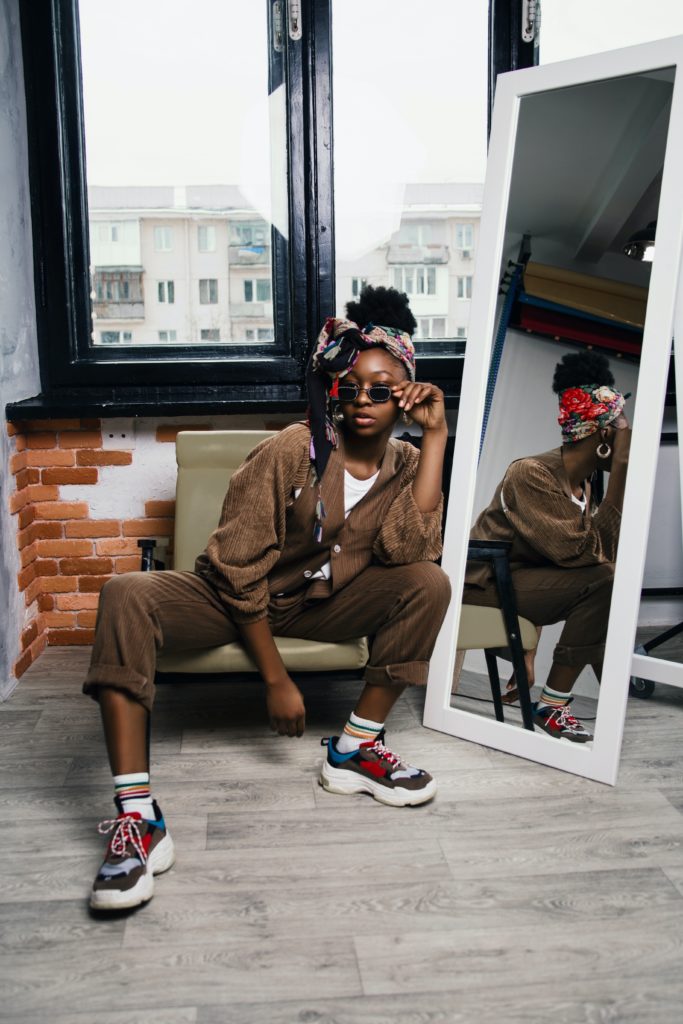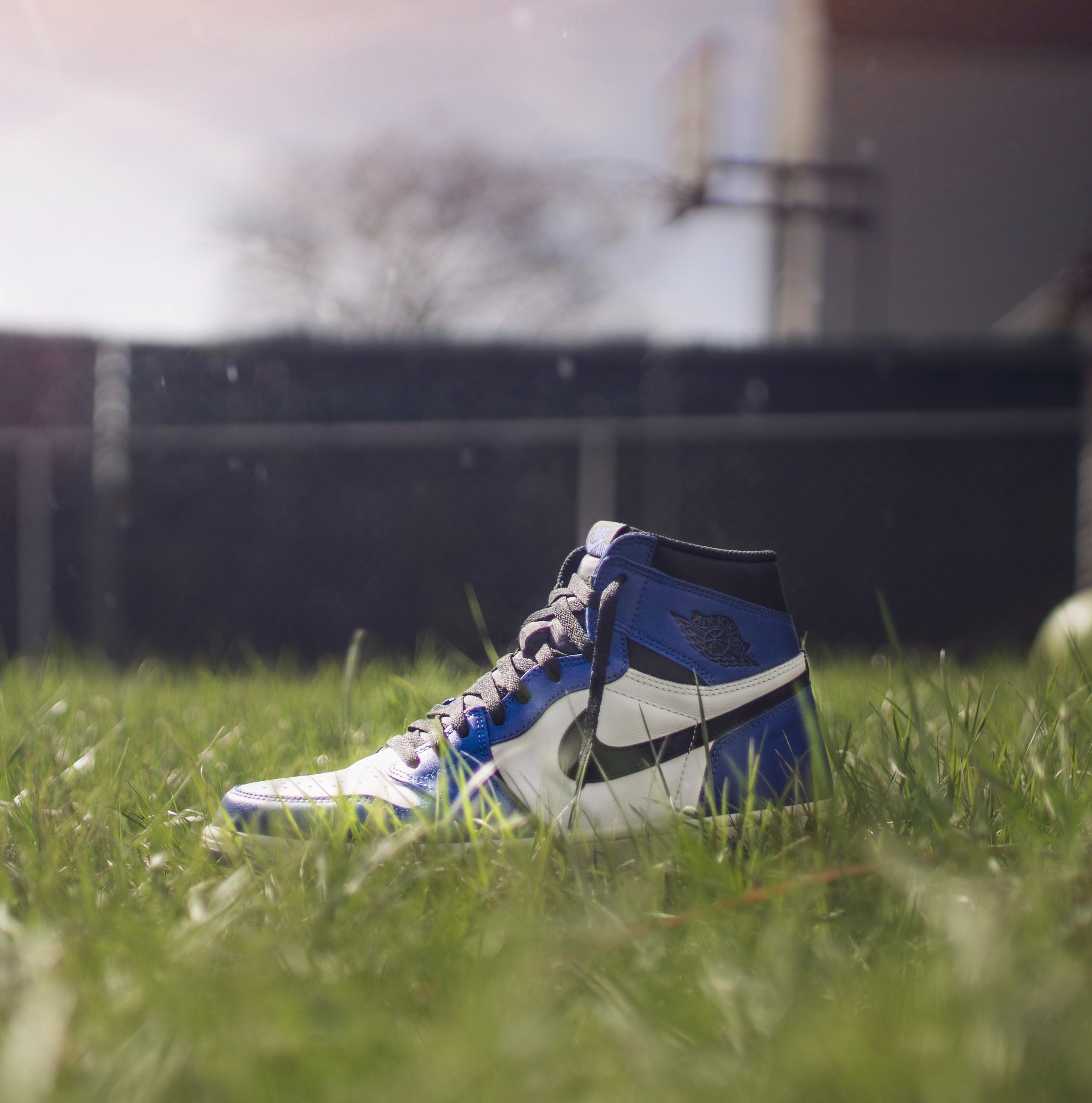Black girl sneakerheads have been around for years. However, you wouldn’t know that if you let mainstream media tell the story. Fortunately, Black women are making space for other Black women to have a seat at the table.
Obstacles for Black Girl Sneakerheads in the Industry
Contrary to popular belief, Black women are often the trendsetters of what we see brands and ad campaigns portraying today. The problem is that those companies don’t always extend these opportunities to include the women who inspire them. And as a result, Black women are left out of a trend they helped start.
“We don’t control the culture or mainstream media so we’re still a minority in the business. To them [our style] is ‘ghetto until proven fashionable,’ sneaker enthusiast dubbed “kickfluencer” Kia Marie tells us.
Misconceptions About Black Girl Sneakerheads
There are many misconceptions about Black girl sneakerheads’ influence on the sneaker industry. And unfortunately, they contribute to the downplaying and eventual erasure of Black women’s impact in that space.
According to renowned sneaker expert Jazerai Allen-Lord, the narrative is often told that Black women are scarce in sneaker and streetwear culture “because there’s not a lot of representation for our storytelling, especially through the lens of Blackness. Because we don’t see ourselves, it’s easy for other people to say well [we’re] not there,” she says. Which Allen-Lord finds ironic considering Black women’s entire aesthetic still shows up on non-Black models and influencers who don baby hairs, teeth jewels, high ponytails, extensions, lip fillers and BBLs.
How Black Girl Sneakerheads Are Changing the Game
Despite all the barriers, Black women have found their own way to break into the male-dominated and white-washed space. By creating their own avenues and platforms to amplify themselves, Black women are turning lemons into lemonade. Take a look at how Black women are leaving their mark on the sneaker space:
1.
Black Girl Sneakerheads Are Creating Safe Spaces

Take for instance someone like Jourdan Ash who created her own digital platform called True To Us. She realized that she needed a safe space for herself and others who look like her to truly be seen. So as a result, she created the change she wanted to see in the industry. And by doing so, she’s helping to extend new opportunities throughout her own community.
By developing their own platforms and outlets through which to be heard, Black women have managed to break into the sneaker space despite being excluded from it. And fortunately, their efforts haven’t gone unnoticed.
2.
They’re Building Brands
View this post on Instagram
Other Black girl sneakerheads like Deidree Golbourne are taking steps to establish their own lane in the culture by boosting ownership of brands made for Black women, by Black women.
“Black Women and our creative genius need to be centered more often in the sneaker and the streetwear realm due to our contributions continuously being the blueprint,” she says. “Our influence is commonly appropriated and profited off of by others who end up getting highlighted and given more opportunities compared to us.”
With this spirit in mind, Golbourne is founding her own casual and athleisure brand to represent for former athletes and women who prefer more traditional “masculine” wear, a welcomed change from how we’re typically portrayed in traditional roles like athletes and glam girls.
3.
They’re Channeling Their Frustration
View this post on Instagram
Even people like T.J. Keasal (Talks with TJ), Christyna Pourhabib, Ashley Hall, Anisa Dash and many many more are finding their own unique ways to still make sure Black women’s presence is still felt in the industry – whether the media chooses to highlight them or not.
The frustration behind not seeing yourself in mainstream culture is a reality Black women have dealt with for years, but our determined mindset has not allowed us to accept that fate without a fight. Turning our anger into passion is why so many Black women have broken barriers so that others coming up under them can see that change is possible.
4.
They’re Creating Opportunities Through Change
View this post on Instagram
Change is what allowed women like Scottie Beam to appear in Nike ad campaigns, Aleali May to have her own collaborations with the brand as well and Allen-Lord to work closely with Reebok. Giving Black women opportunities is the change that makes all the difference in amplifying us. Providing us space and opportunity to be at the forefront of the culture, especially during times when it’s not predictable to highlight Black culture (i.e. Black History Month).
View this post on Instagram
“To be more inclusive and equitable, giving Black women the platform to express our ideas and establish future connections to collaborate would not only allow us to rightly shine but create a more robust sneaker world,” Golbourne tells us. “Not only when it’s a holiday or a commemorative month. More minds, more representation, and more importantly, more showcasing of Black Womens’ true ability when we are given the lane to fully shine and be free is our sole step to a better sneaker world.”
5.
They Support Each Other
View this post on Instagram
It’s not only on the industry at-large to support Black women in sneaker culture. The community itself has to lean on one another because if we don’t help each other who will?
“There’s a misconception that women don’t want to help each other out, but I make it a point to know who’s coming up, offer help and put them in projects,” Allen-Lord shares. “We have to be there for each other. Nobody has more power to change the trajectory of this world than the Black women in Gen Z.” No matter how big or small the platform is, Black women in this space have voices that need to be heard and it’s our job to use them unapologetically to create a better future.
6.
They’re Repping the Culture
View this post on Instagram
Black women in this culture are thriving and putting on for our community in ways we wouldn’t think were possible two decades ago. And as more diversity in media representation increases, our influence will only continue to grow from there.
“I’m so grateful and thankful to see so many Black women finally getting the recognition they deserve when it comes to this space because without [us] I don’t think sneaker culture would be what it is today,” Marie tells us.
According to her, she wants to see more seats at the table for her community and more opportunities putting money in our pockets because that is what will truly help elevate us in this business-focused industry.
7.
They’re Leading Trends
View this post on Instagram
The fact of the matter is sneaker culture would not be what it is today if it weren’t for the power and impact of Black women. “Black women are the archetype of sneaker and streetwear culture. It’s our style and aesthetic that even moves the needle,” Allen-Lord declares. “The power of Black women is that you can see us woven throughout every stitch of the culture and feel our presence despite the fact that the media continues to shut us out.” From the latest trends to what’s up-and-coming, Black women in this culture are the true glue that holds it all together.
“Anything that Black people touch in general we make it cool, but Black women, what we do with sneakers is different,” Marie says. “We bring a different sauce, swag and versatility to it because we wear them in so many different ways. We’re so creative, innovative and resourceful and I think that really shows what we bring to the culture.”
